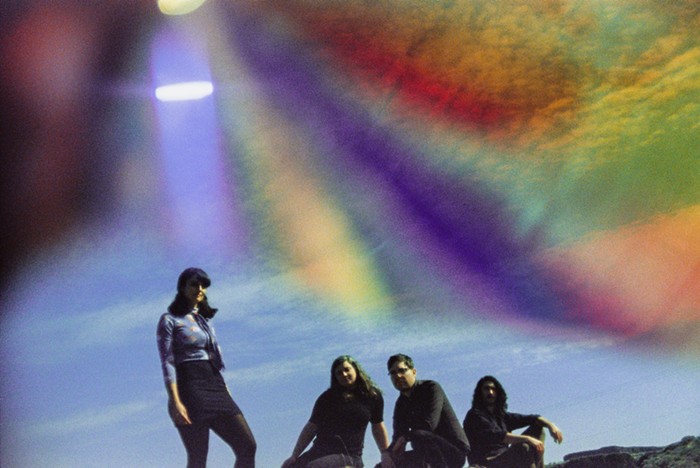In a recent Pitchfork interview, Brian Chippendale of the veteran noise band Lightning Bolt postulates that this generation's fondness for bands such as his reflects a simple desire to one-up their elders in terms of volume and racket—to turn the proverbial amps up to 11. But the use of loudness and noise by raucous outfits is more than just a generational pissing contest; it's an important insulation against cooptation or assimilation into popular culture.
"Loudness is definitely important," agrees Gay Beast's Dan Mal on the phone from somewhere between L.A. and San Francisco. The Minneapolis trio are three weeks into a five-week tour, crossing the country in a biodiesel-fueled car towing a homemade trailer. "I like that jarring aesthetic; I like seeing a queer band that's not dance music and isn't soft."
Their debut full-length, Disrobics, squeezes 10 tracks of skronky discord and stop/start rhythms into just under a half an hour. They make up for brevity by eschewing traditional, repetitive structures, introducing new passages at a rapid rate rather than returning to previous patterns. The result is an auditory illusion, an album that seems to contain more music than its duration should allow.
If Gay Beast are intentionally abrasive, they at least attempt to strike a balance between alienating and enticing audiences.
"I definitely think about not trying to be accessible, but it's an internal logic, not a big 'fuck you!' to the audience," says Mal. "I want it to be complicated but not totally incoherent. Our music's not easy, but hopefully it's memorable because there are little hooks and rhythmic patterns. We're trying to mess with musical traditions, but we're not after complete alienation." 


















